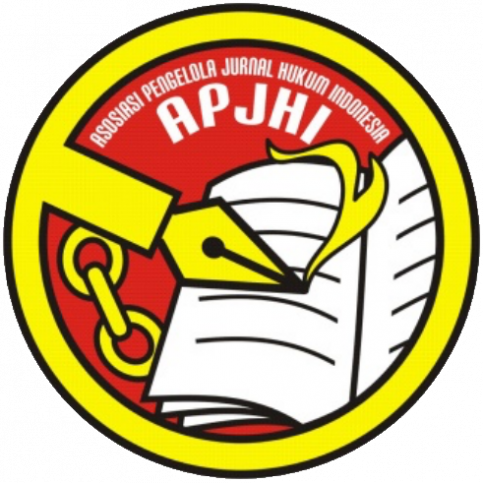Legal Implication on Supreme Court Decision that Conclude Contract of Work has a Lex Specialis Principle from the Local Taxes and Retributions Act 2009 towards Local Government Finance
Abstract
The Contract of Work between the Government of Indonesia and mining companies has the nailed down tax obligations, which means that the mining companies only pay taxes that are stipulated at the time when the Contract of Work was signed. A legal issue arose when the Local Taxes and Retributions was enacted in 2009 which did not exclude Contract of Work mining companies from imposing local taxes. In several provinces, the tax dispute arose when the Local Government imposed local taxes on the mining companies under the Contract of Work based on the Local Taxes and Retributions Act. The pattern of dispute settlement process from those issues was carried out until the case review process by the Supreme Court. The decision on the case review stated that the Contract of Work was valid as a lex specialis of the Local Taxes and Retributions Act with consideration: there was a recommendation from the House of Representatives in the formation of a Contract of Work and the Letter of the Minister of Finance No. 1032/MK.04/1988. The method that will be used in this study is the normative juridical method, referring to written legal materials in the form of primary, secondary, and tertiary legal materials which are specifically related to local taxes and absolute tax theory. The result of this research concluded that the Supreme Court decision was not conformable with tax law principles and absolute tax theory. Furthermore, considering the erga omnes principle of the Administrative Court System that the Tax Court is beneath the scope, the decision implies the other local government that cannot collect local taxes from mining companies under Contract of Work.
Full Text:
PDFReferences
Bagir Manan. (2004). Hukum Positif Indonesia:Satu Kajian Teoritik. Yogyakarta:FH UII Press.
Dewi Kania, et.al. (2020). Hukum Pajak. Bandung:Remaja Rosdakarya. 2020.
Harys Pratama Teguh. (2019). Hukum Keuangan Negara. Bandung:Pustaka Setia.
Jimly Asshidiqie. (2006). Perihal Undang-Undang. Jakarta:Konstitusi Press. 2006.
Kementerian Energi dan Sumber Daya Mineral Republik Indonesia. (2021, December 16). Minerba One Data Indonesia. Retrieved from https://modi.esdm.go.id/
Maria Farida Indrati S. (2007). Ilmu Perundang-undangan (1) (Jenis, Fungsi, dan Materi Muatan. Yogyakarta:Penerbit Kanisius.
Nabila Zulfa Humaira. (2017). Implikasi Yuridis Undang-Undang Nomor 4 Tahun 2009 tentang Pertambangan Mineral dan Batubara terhadap Kontrak Karya Pertambangan antara Pemerintah Indonesia dengan PT.Freeport Indonesia. Diponegoro Law Journal. Vol.6, No.2, 2017.
Ni’matul Huda. (2018). Hukum Tata Negara Indonesia. Jakarta:Rajawali Press.
Nurfaqih Irfani. (2020). Asas Lex Superior, Lex Specialis, dan Lex Posterior,:Pemaknaan, Problematika, dan Penggunaannya dalam Penalaran dan Argumentasi Hukum. Jurnal Legislasi Indonesia. Vol.16 No.3 – September 2020.
Pamungkas Hudawanto. (2020). Eksistensi Satibilzation Clause dalam Kontrak Karya sehubungan dengan Berlakunya Undang-Undang Nomor 4 Tahun 2009. Tesis Pascasarjana FH UII.
Purnadi Purbacaraka dan Soerjono Soekanto. (1983). Perundang-undangan dan Yurisprudensi. Bandung:Citra Aditya Bakti.
Rochmat Soemitro. (2010). Asas dan Dasar Perpajakan. Bandung:Refika Aditama.
Salim H.S. (2007). Hukum Pertambangan di Indonesia (Edisi Revisi). Jakarta:Rajawali Press.
Soehino. (2005). Ilmu Negara. Yogyakarta:Liberty.
Soerjono Soekanto dan Sri Mamudji. (2015). Penelitian Hukum Normatif. Jakarta:Rajawali Press.
Zairin Harahap. (2014). Hukum Acara Peradilan Tata Usaha Negara (Edisi Revisi). Jakarta:Rajawali Press.
DOI: http://dx.doi.org/10.31000/jhr.v10i2.6151
Article Metrics
Abstract - 471 PDF - 452Refbacks
- There are currently no refbacks.

This work is licensed under a Creative Commons Attribution-ShareAlike 4.0 International License.

